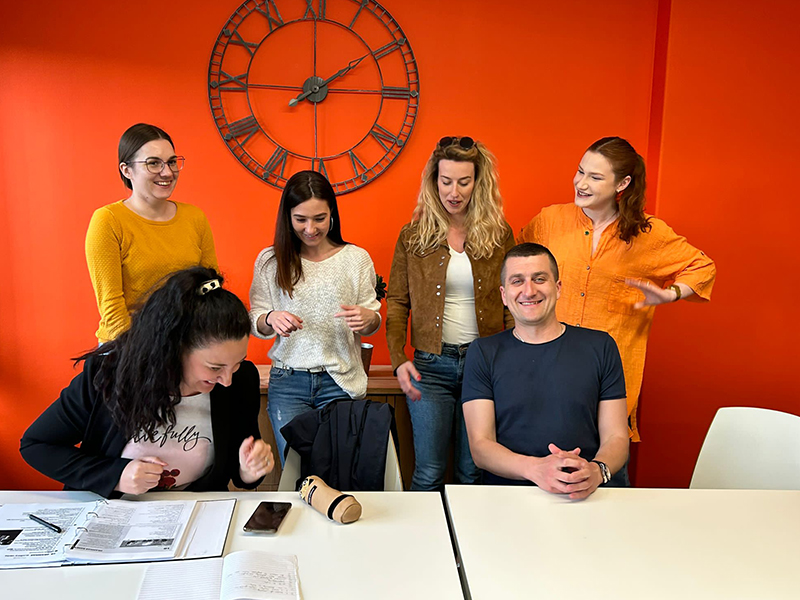Intellecta’s method – theory and practise!
In Intellecta, we believe that learning a foreign language isn’t a dull, monotonous implementation of grammatical rules and structures, but a multidisciplinary, exciting, entertaining, and amusing approach to reaching fluency and knowledge of a foreign language.
# About situational learning
The method of situational learning is the pillar of all our language classes. Situational learning is an instructional approach that emphasizes the application of language skills in real-life contexts. This method recognizes the importance of situational awareness and equips students with the ability to effectively use language in specific scenarios. By immersing students in authentic situations, situational learning facilitates a deeper understanding of language and enhances practical language application in everyday life.
# Key Characteristics of Situational Learning
Real-Life Contexts: Situational learning revolves around presenting language within the framework of real-life situations. This allows learners to connect language skills with practical scenarios they might encounter.
Task-Oriented Activities: Activities are designed to mimic tasks individuals would perform in everyday situations. This could include ordering food in a restaurant, visiting a foreign city, or participating in a business meeting.
Interactive and Collaborative: Situational learning promotes interaction and collaboration among students, moderated by the teacher. Group activities and role-playing exercises encourage communication in various contexts, fostering a dynamic learning environment.
Problem-Solving Approach: Learners are challenged to solve problems using language skills. This can involve negotiating, making decisions, or addressing issues within the context of the given situation.
Authentic Materials: Authentic materials, such as maps, menus, or real-world documents, are integrated into lessons to expose learners to genuine language use in relevant situations.
#Examples of Situational Learning in Intellecta’s Classes
Travel Scenarios: Simulate travel scenarios where students practice booking accommodations, asking for directions, and engaging in conversations at airports or train stations.
Business Meetings: Role-play business meetings, negotiations, or presentations. Students use industry-specific vocabulary and practice effective communication in a professional setting.
Medical Situations: Create medical simulations where students take on the roles of patients, doctors, or nurses. This includes practicing giving and understanding medical advice or discussing symptoms.
Daily Routines: Construct scenarios related to daily routines like grocery shopping, making phone calls, or scheduling appointments. Students engage in conversations using appropriate language and master language skills for everyday tasks.
Social Interactions: Simulate social gatherings, dinners, or casual conversations. Learners practice introducing themselves, expressing opinions, and engaging in small talk.
# Join us!
And this is just to name a few. This type of learning increases motivation and engagement, students feel more self-confident, and can easily create memorable associations between language and real-life situations. Practical application of the knowledge helps them to communicate effectively in the real world. Come and join us and find out what is situational learning all about!
Join us!
Uštedi na telefonskom pozivu! Ispuni obrazac i naše simpatične savjetnice za upis uskoro će te kontaktirati!
Upotrebom ovog obrasca prihvaćaš pohranu i rukovanje tvojim podacima na ovoj mrežnoj stranici. Provjeri Pravila privatnosti.
Sign up for our newsletter and be among the first to find out about benefits and news! And for everything else, follow us on our Facebook and Instagram profiles!😉





